The audio jack requires software remapping of the PWM0/PWM1 signals to GPIO12 and GPIO13 and uses simple filters as seen on the Raspberry Pi A/B models. If you want to use this with an A+ you don't need to populate these components.
The regulator in the centre of the borard is optional, you can bridge the 2-pin header below the ESP-12F if you want to use the Pi's 3v3 supply. Otherwise you can populate a SOT223 regulator where the tab is VOUT (e.g. with AMS1117
or LD1117S33).
The ESP-12F has an SPI flash sitting on the SDIO pins of the ESP8266. It used to be believed that this would cause issues and that workarounds, such as running SDIO in a reduced bandwith 1-bit mode were needed. But now it's better understood that due to the differences between SPI and SDIO the flash being on the pins shouldn't be a problem.
BOM
+----+---------------------+-----+-------------+-------------------+
| ID | Value | Qty | Package | Components |
+----+---------------------+-----+-------------+-------------------+
| 1 | Raspberry Pi Header | 1 | HDR2X20 | HDR |
| 2 | ESP8266-12E/ESP-12E | 1 | LGA22-24x16 | U1 |
| 3 | 0.1u | 2 | C0805 | C1,C7 |
| 4 | 200R | 6 | R0805 | R1,R2,R3,R4,R5,R6 |
| 5 | 0R | 2 | R0805 | R7,R13 |
| 6 | 10k | 1 | R0805 | R8 |
| 7 | Stereo_TS | 1 | 3.5_PJ313D | U2 |
| 8 | 270R | 2 | R0805 | R9,R10 |
| 9 | 33n | 2 | C0805 | C2,C3 |
| 10 | 150R | 2 | R0805 | R11,R12 |
| 11 | 10u | 4 | C0805 | C4,C5,C6,C8 |
| 12 | BAV99 | 2 | SOT23 | D5,D6 |
| 13 | AMS1117_SOT223 | 1 | SOT223 | U3 |
| 14 | 0R/NC | 1 | R0805 | R14 |
| 15 | SIP2 | 1 | HDR1X2 | P1 |
+----+---------------------+-----+-------------+-------------------+ jacksonliam
jacksonliam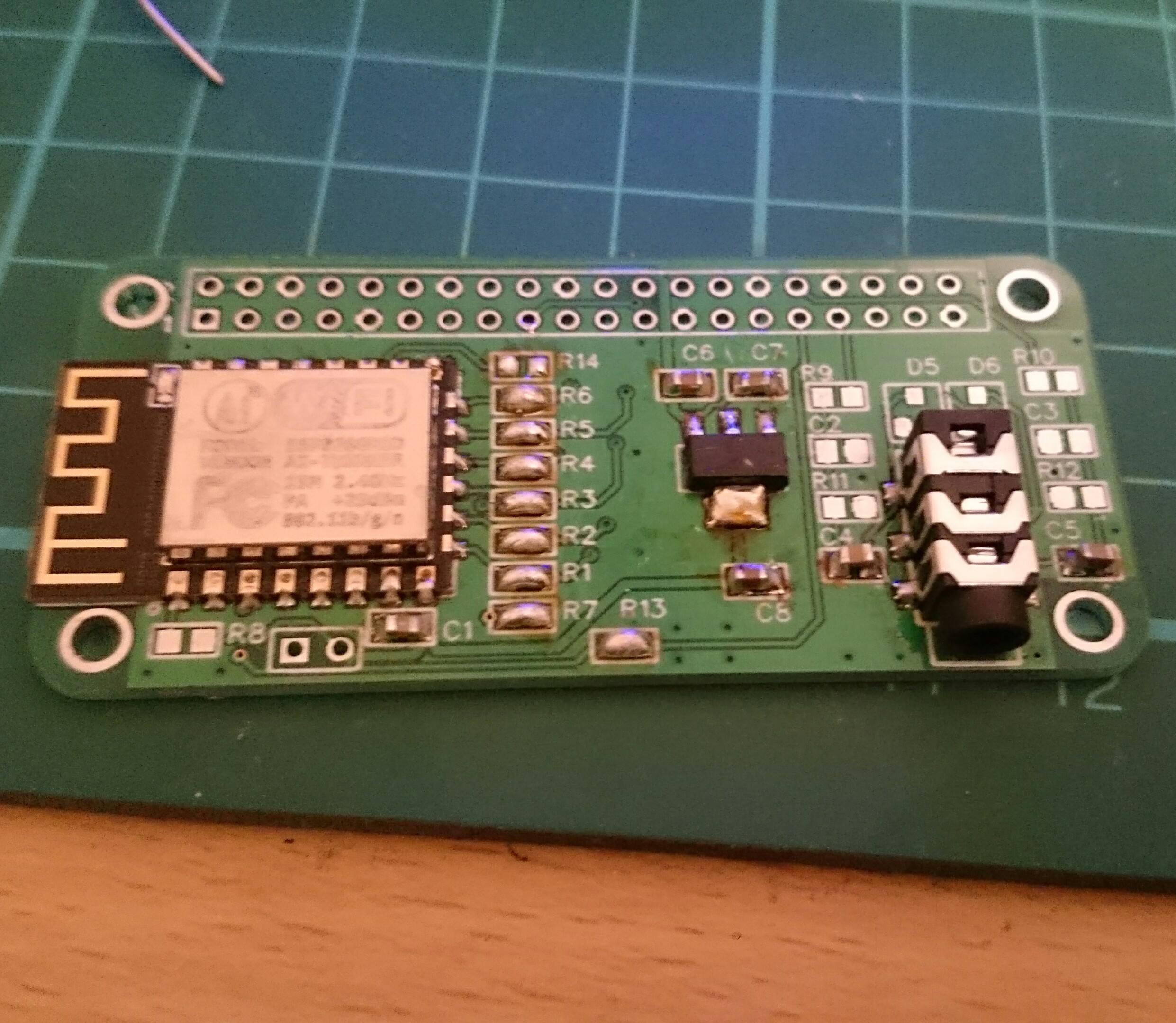
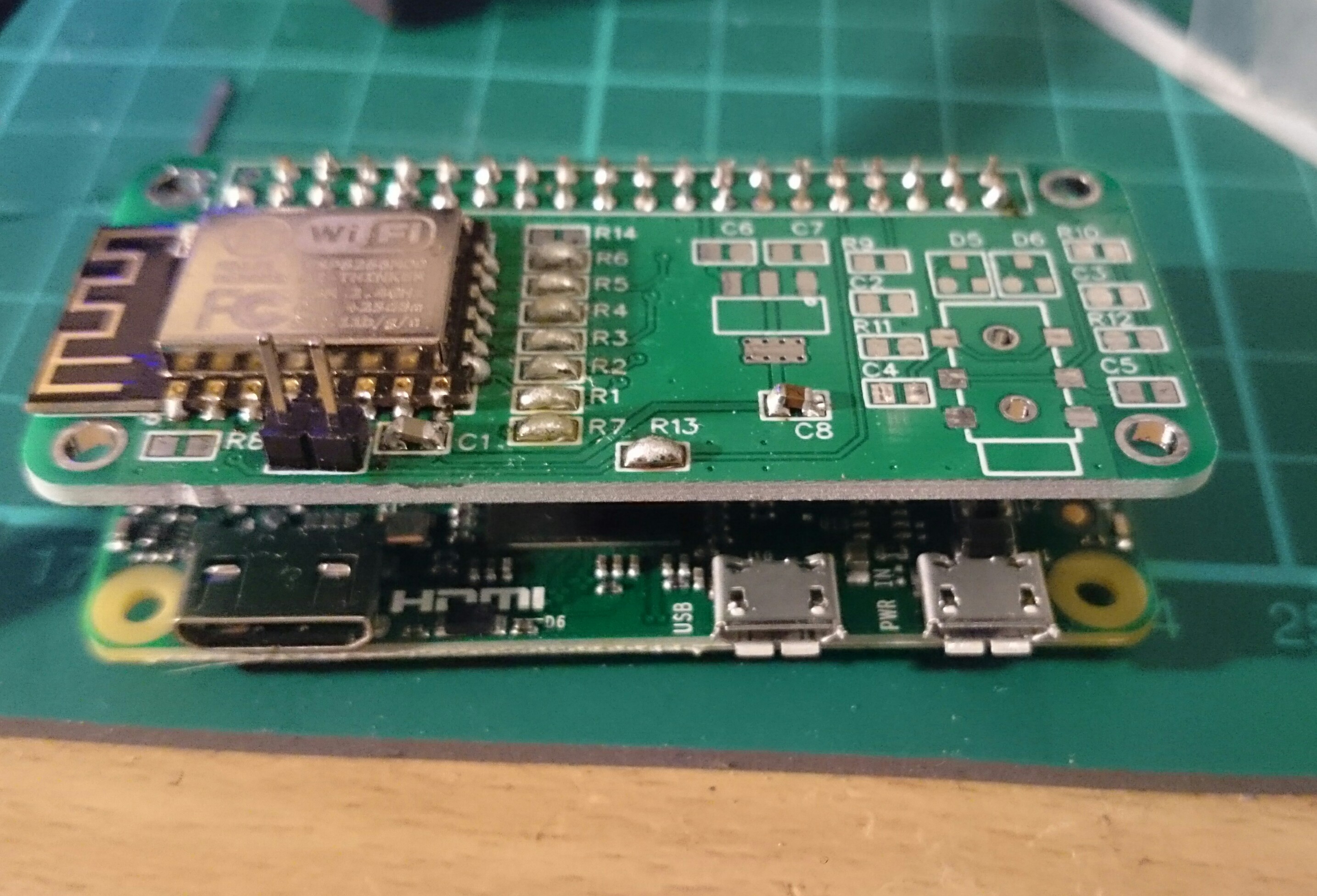


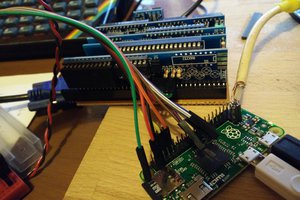
 spencer
spencer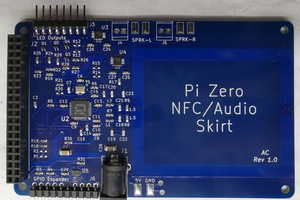
 CircuitMonster
CircuitMonster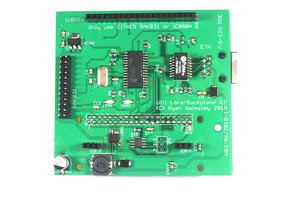
 Ryan Walmsley
Ryan Walmsley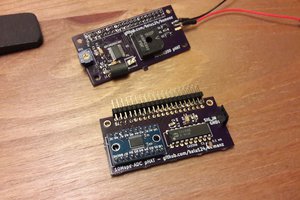
 kelu124
kelu124
Hey Guys,
I am getting the following error while trying to compile fro raspberry pi kernel 5.10.11-v7+
Listed below is my error:
pi@raspberrypi:~/esp8089 $ sudo make
make -C /usr/src/linux-headers-5.10.11-v7+ M=/home/pi/esp8089
make[1]: Entering directory '/usr/src/linux-headers-5.10.11-v7+'
CC [M] /home/pi/esp8089/esp_debug.o
/home/pi/esp8089/esp_debug.c: In function ‘esp_dump_var’:
/home/pi/esp8089/esp_debug.c:90:20: error: void value not ignored as it ought to be
rc = debugfs_create_u8(name, mode, parent, (u8*)value);
^
/home/pi/esp8089/esp_debug.c:93:20: error: void value not ignored as it ought to be
rc = debugfs_create_u16(name, mode, parent, (u16*)value);
^
/home/pi/esp8089/esp_debug.c:96:20: error: void value not ignored as it ought to be
rc = debugfs_create_u32(name, mode, parent, (u32*)value);
^
/home/pi/esp8089/esp_debug.c:99:20: error: void value not ignored as it ought to be
rc = debugfs_create_u64(name, mode, parent, (u64*)value);
^
/home/pi/esp8089/esp_debug.c:109:20: error: void value not ignored as it ought to be
rc = debugfs_create_u32(name, mode, parent, (u32*)value);
^
make[2]: *** [scripts/Makefile.build:279: /home/pi/esp8089/esp_debug.o] Error 1
make[1]: *** [Makefile:1808: /home/pi/esp8089] Error 2
make[1]: Leaving directory '/usr/src/linux-headers-5.10.11-v7+'
make: *** [Makefile:126: modules] Error 2
Please Help